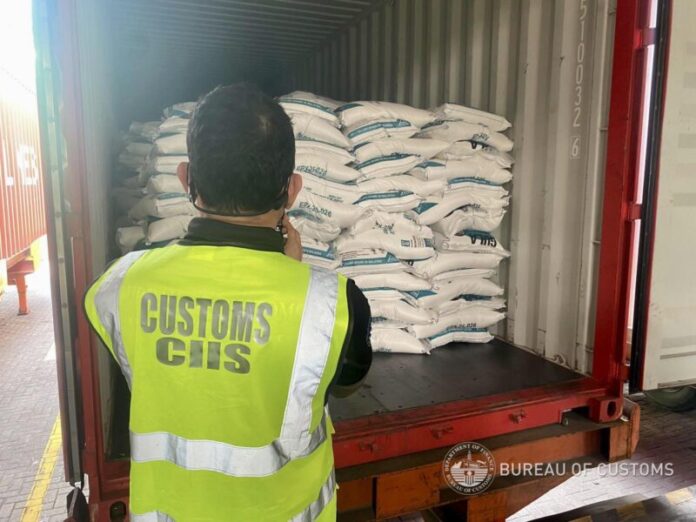
-
Digitalizing Bureau of Customs operations will be an “important part” of President Ferdinand Marcos Jr’s strategies to curb rampant smuggling in the country
-
The Philippines can adopt anti-smuggling strategies implemented by other countries, he said
Digitalization of the Bureau of Customs (BOC) will be an “important part” of the government’s strategies to curb rampant smuggling in the country, according to President Ferdinand Marcos Jr.
“The smuggling, ‘…kailangan talagang i-solve ‘yun. Masyadong laganap ang smuggling dito sa Pilipinas kahit na ano ini-smuggle eh (really has to be solved. It’s so rampant in the Philippines; everything is being smuggled). So we have to really look into that and we have some very good ideas,” Marcos said in an interview over the weekend.
He said the Philippines can adopt anti-smuggling strategies implemented by other countries and digitalization at the BOC “is going to be an important part of that.”
It must be noted that there are already a number of digitalization efforts rolled out by the BOC over the years. Acting Customs commissioner Yogi Filemon Ruiz last year said BOC’s digitalization program was 91% done and the remaining 9% is part of the Philippine Customs Modernization Program (PCMP), a project expected to improve the country’s customs administration by streamlining, automating, and developing a world-class customs processing system.
BOC launches Customs Modernization Project, eyes full modernization by 2024
The World Bank-funded PCMP was officially launched in March 2021. It has a total cost of $104.38 million, of which $88.28 million will be funded through WB’s official development assistance, and the balance shouldered by the borrower.
Implementation of the program has, however, stalled due to a case filed against BOC. The project supervision contract, in particular, has not yet been awarded due to ownership issues involving the potential contractor.
RELATED READ: PH customs modernization project encounters a hiccup
Rampant smuggling
In a meeting with the Private Sector Advisory Council (PSAC) last week, Marcos said the present system isn’t working and that government agencies must do something to decisively address rampant smuggling.
“To be brutally frank about it, we have a system but they are not working. The smuggling here in this country is absolutely rampant. So it does not matter to me how many systems we have in place, they do not work,” Marcos said during the meeting.
“So, we really have to find something else. We cannot continue to depend on these systems which have already proven themselves to be quite ineffective,” he added.
Whether the systems are ineffective or it’s the way they’re being operated or the result of side deals by the people, the end-result is that the systems currently in place are not working, Marcos said.
The government cannot continue to sweep the issue under the rug because the cost to the state and private businesses is enormous, Marcos pointed out.
According to the President, issues on the ease of doing business and the inefficiency of the country’s airports and seaports are the major complaints he is receiving from the business sector.
Concerned agencies have to be more innovative, Marcos said, stressing the government has to delineate functions or establish new agencies, if necessary, to be effective.
One of the recommendations put forward was the sharing of database between the BOC and the Department of Agriculture (DA).
DA and BOC already have a data-sharing agreement to facilitate exchange of information on traded agricultural commodities, primarily on unfair trade practices and surge of imports.
Signed on January 27, 2022, the DSA is one of the initiatives between DA and BOC that ensures local agri-fishery products will remain competitive with overseas counterparts.
In October 2021, DA and BOC also signed a deal to implement a new set of measures to curtail the entry of smuggled agricultural commodities and guarantee optimum level of food safety.
There were also proposals for DA to transition to a centralized digital system to fight smuggling and address discrepancies in data on agricultural shipments.
Former DA officials have asked Congress for budget on this digital system, admitting that DA’s database is not centralized and has no way of monitoring agricultural imports that have arrived in contrast vis-à-vis volume in issued sanitary and phytosanitary import clearances.




